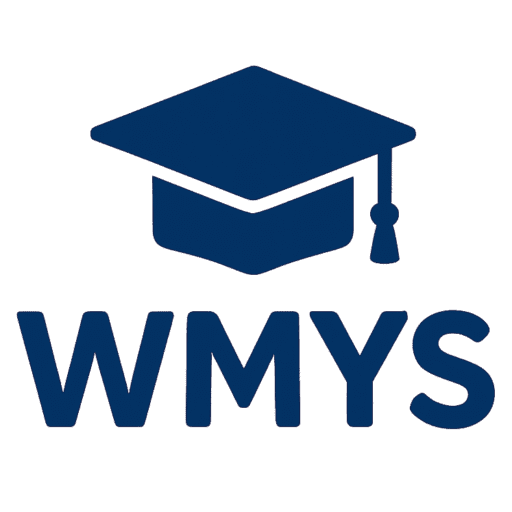University of Cambridge Non-Stipendiary Research Fellowship 2026 at Murray Edwards College (UK)
The University of Cambridge, in collaboration with Murray Edwards College and several participating colleges, is inviting outstanding early-career researchers to apply for a **Non-Stipendiary Research Fellowship** beginning in October 2026. This fellowship is ideal for scholars who already have funding (or expect to secure it) and wish to conduct independent research while benefitting from Cambridge’s academic environment.
Unlike conventional fellowships, this position does not include a salary from the college. Instead, successful applicants are expected to rely on **external funding** for their research and living costs. The role offers affiliation, college membership, access to resources, and additional perks that come with being part of Cambridge’s scholarly community.
Eligibility and Candidate Profile
To be considered, applicants typically must:
- Have completed (or be near completion of) a PhD thesis by the start of the fellowship.
- Have no more than about **five years’ full-time postdoctoral experience** (or equivalent) in total.
- Have secured or be under serious consideration for **external funding** to support their research during the fellowship.
- Propose a strong research project in one of the relevant fields (Chemistry, Biochemistry, Chemical Engineering, Biotechnology).
Fellowship Duration and Research Commitments
Term of Appointment
This fellowship is tenable for a **three-year period**, beginning 1 October 2026. Continuation during later years depends on satisfactory scholarly progress.
Research Duties and Reporting
Your principal role is to advance your chosen research project. You will be required to submit an **annual progress report** to your college, describing developments and milestones.
College Governance and Membership
Fellows become members of the **Governing Body** of their college, granting them input into college governance and participation in internal decision-making processes. You may also serve on committees and attend governance meetings.
Dining Rights and College Perks
One significant benefit is **full dining rights**, allowing seven free meals per week in college, which helps reduce day-to-day living costs.
Research & Book Grants
Annual allowances are available upon application: e.g., **£800** for research expenses and **£300** for book or resource acquisition.
Accommodation Assistance
Colleges may offer subsidized accommodation or favorable housing options when available. Even if you live off-site, colleges often assist with housing connections and support.
Teaching Opportunities
While teaching is not a requirement, some departments or colleges may permit limited supervision or small-group teaching. This is usually separately compensated and should not conflict with your research obligations.
Application Process: How to Apply
- Prepare a compelling research proposal — innovative, realistic in scope, and aligned with Cambridge’s departmental strengths.
- Secure or apply for external funding — since the fellowship itself provides no salary, your research and living costs must be backed by external sources.
- Gather supporting documents: curriculum vitae, list of publications, PhD certificate (or expected completion), strong references, and letters of departmental endorsement.
- Submit your online application by the deadline — for this fellowship, the closing date is **10 November 2025**.
- Colleges evaluate applications jointly under a shared scheme.
- Shortlisting and interviews — selected candidates may be invited for interviews by college representatives.
Important Dates & Deadlines
- Advertisement posted: 10 October 2025
- Application deadline: 10 November 2025
- Fellowship start: 1 October 2026 (expected)
Competition and Selection Insights
This fellowship attracts many accomplished researchers, often with strong publication records and existing funding. In past cycles, over **1,300 applications** were received. The selection is rigorous, so your research project, funding plan, and references must be exceptional to stand out.
Pros & Cons for International Applicants
Advantages
- Prestigious Cambridge affiliation.
- Access to top-tier research infrastructure, seminars, and networks.
- College membership with perks like dining and governance roles.
- Freedom to focus deeply on research without heavy teaching responsibilities.
Challenges
- No salary — you must rely entirely on external funding.
- Cambridge is expensive: housing, transport, and living costs are high.
- UK visa rules for self-funded research must be satisfied.
- Strong competition and high expectations from evaluators.
Tips to Strengthen Your Application
- Line up external funding before applying (e.g. national grants, international fellowships).
- Choose referees who can testify to your research independence and potential.
- Demonstrate fit: explain why Cambridge, that department, and that college align with your work.
- Show evidence of past productivity: publications, conferences, collaborations.
- Budget realistically: show how your funds support living, research, and contingency.
- Be clear, concise, and error-free in your proposal and documents.
Frequently Asked Questions (FAQs)
Can I apply from outside the UK?
Yes. International scholars are eligible, provided they meet the criteria and funding expectations.
Do I need to already have funding secured?
Yes, or be in strong position to receive it. The fellowship doesn’t provide a stipend.
Will the fellowship cover my living costs?
No, unless your external funding does. The college perks and grants help, but you must budget accordingly.
Can I teach or take on paid roles during the fellowship?
Yes, within guidelines. Some teaching or supervision may be allowed if compatible with your research and funding constraints.
Official Link & Application Portal
For full details, instructions, and to apply, visit:
Cambridge Non-Stipendiary Research Fellowship (Jobs.ac.uk)




